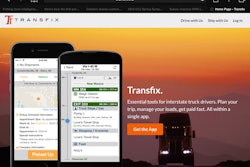 J.J. Keller’s Managed Services group offers reporting and consulting for fleet compliance.
J.J. Keller’s Managed Services group offers reporting and consulting for fleet compliance.During a corporate SWOT (Strengths, Weaknesses, Opportunities, Threats) analysis meeting, it would seem unusual for a fleet executive to make a case for compliance being a Strength.
No one in the room may feel compelled to argue that compliance is a Weakness or a Threat, either.
The bottom line is that how a company manages its fuel taxes, hours of service, driver qualification files and other compliance processes is not a competitive advantage.
To focus company resources on areas that matter most, like customer service and driver management, many for-hire and private fleets are instead choosing to outsource their routine compliance processes.
As the transportation industry continues to go electronic, third party service providers say they are seeing increased demand from fleets to hand over controls for managing information, as well.
Training management
Employee training programs, and training records, do not fit a regulatory process from federal and state agencies, but the risk exposure of mismanaging information is similar. The risk is always present as training records, especially at larger fleets, often come from different sources and locations.
Recently, J.J. Keller and Associates added training management to its portfolio of Managed Services. Its new service combines human expertise and technology for managing employee training data from all sources, include handwritten records, spreadsheets and learning management systems.
By using the online Client Information Service, fleet managers have visibility to the status of training, says Jacqui Jurmu, J.J. Keller’s senior product line manager of Managed Services. To prioritize resources, fleets can use the interactive, online service to view exceptions, identify trends, and see training topics coming due by location, job function and by employee.
From the same portal, fleet managers can monitor the status of other compliance processes they outsource to Keller’s Managed Services like driver qualification files, hours of service, and more.
Managing compliance in the cloud
Outsourcing is not an all-or-nothing decision. For-hire and private fleets may keep some compliance processes in house while using third party expertise and technologies in areas they believe will help them be more efficient and lower their risks.
 Specialists in ITS Compliance’s office receive data from customers both as scanned images and real-time electronic feeds.
Specialists in ITS Compliance’s office receive data from customers both as scanned images and real-time electronic feeds.ITS Compliance, a Madison, Wis.-based provider of compliance and risk management services, lets fleets to pick and choose the services and technology tools they want to outsource, says John Vosters, chief sales officer.
ITS clients that use managed services access their data through an online platform called ITS Comply. The platform gives a dashboard summary view of compliance status for the current audit period — weekly or monthly, for example, says Rob Getz, president and chief executive officer of ITS.
The company is working on a software-as-a-service version of ITS Comply for fleets that want to use the technology to manage compliance themselves. For instance, a fleet could use the platform to manage their driver qualification files, by supplying their own labor for data entry and processing.
With the SaaS version, fleets can use ITS Comply for internal processes and use managed services from ITS for areas that make the most sense for their businesses, he says.
The SaaS version of ITS Comply will provide information in a more real-time manner. Fleets can have data from electronic logging devices fed to ITS Comply automatically for real-time reporting of violations, for instance. “We deal with so many different ELD technologies, we don’t care which one you use,” Vosters says.
In addition, the platform can give higher-level views of safety and risk management by capturing and modeling driver performance data — like hard braking and speeding events — captured from telematics systems, he explains.
Given the options for compliance management services and technologies, during the next SWOT meeting, a fleet executive may be inclined to make a case for compliance as an Opportunity.










